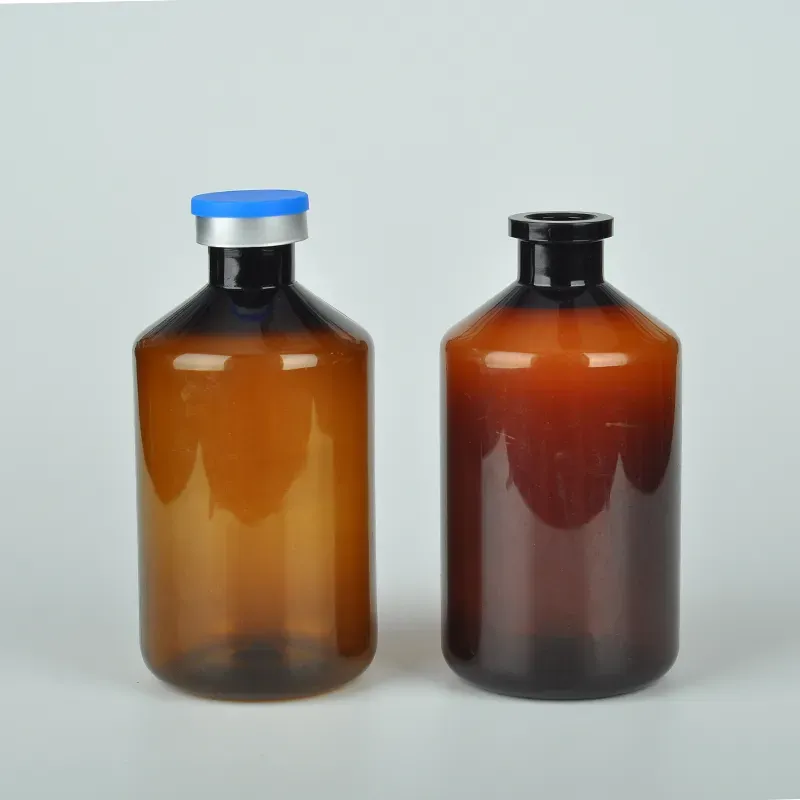Plastic vaccine bottles can be used to store vaccine diluent
Plastic vaccine bottles can be used to store vaccine diluent
Plastic vaccine bottle is a special packaging for storing inactivated animal vaccines, which is generally made of polyethylene or polypropylene. This packaging can be used not only as a packaging container for vaccines, but also as a packaging for vaccine diluents.

Vaccine diluent refers to the solvent used to dilute the vaccine. At present, animal vaccines are divided into three categories according to different preparation methods: freeze-dried vaccine, dry powder vaccine and liquid vaccine, among which freeze-dried vaccine and dry powder vaccine need to be equipped with suitable diluents before immunization. Diluent is the vaccine after proper dilution, directly inoculated into animals or taken orally.

250ml Medical Plastic Vaccine Vial Blue Translucent
Diluents commonly used in animal vaccines include physiological saline, phosphate buffer, aluminum colloidal saline, and special diluents specially prepared according to the characteristics of the vaccine itself, which are mostly composed of vaccine adjuvants, protective agents, nutrients, immunostimulants, immune enhancers, etc. Plastic vaccine bottles are made of polymer materials such as polyethylene or polypropylene, which have good barrier properties and are resistant to corrosion of most acid and alkali solvents, and can be used to store various vaccine diluents.

Generally, there is no vaccine with special requirements. Sterilized physiological saline (such as attenuated live vaccine) is often used as diluent, and distilled water or cold boiled water is also used for dilution in practical application. The specific diluent to be used depends on the instructions of the vaccine. Before using the diluent, make sure whether the plastic vaccine bottle is sealed well, so as to avoid polluting the vaccine due to leakage and affecting the immune effect of animals.
-
White Plastic Veterinary Vaccine Vials | Lab Liquid BottlesNewsAug.18,2025
-
Plastic Medicine Liquid Bottle: Secure Flip Top Drug VialsNewsAug.17,2025
-
Durable 250ml Blue Plastic Vaccine Vial for Lab & Vet UseNewsAug.16,2025
-
Sterile Virus Sample Tubes: Secure & Reliable Specimen CollectionNewsAug.15,2025
-
White 250ml Plastic Vaccine Vial for Lab & Vet MedicineNewsAug.14,2025
-
Premium Clear Plastic Vaccine Vials for Lab & Vet MedicineNewsAug.13,2025

























